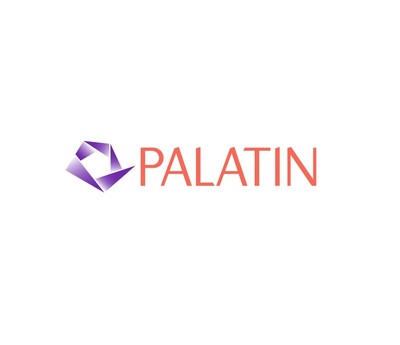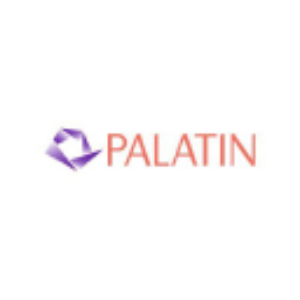Palatin to Present at Eyecelerator @ American Society of Cataract and Refractive Surgery (ASCRS) 2022
Palatin Technologies (NYSE American: PTN) presented at the Eyecelerator@ASCRS 2022 Conference in Washington D.C. on April 21, 2022. The presentation, led by CEO Carl Spana, focused on melanocortins' role in treating ocular diseases and shared Phase 2 results of PL9643 for Dry Eye Disease (DED). Positive outcomes were reported, showing significant improvement in symptoms with excellent ocular tolerability. The ongoing Phase 3 study (MELODY-1) aims to provide topline data in Q4 2022, with an NDA submission planned for early 2024.
- None.
- None.
Insights
Analyzing...
Presentation to review the role of melanocortins in the treatment of ocular disease and Phase 2 study results with Palatin's compound PL9643 for Dry Eye Disease
PL9643 Dry Eye Disease Phase 3 study ongoing - data expected 4Q 2022
CRANBURY, N.J., April 21, 2022 /PRNewswire/ -- Palatin Technologies, Inc. ("Palatin") (NYSE American: PTN), a biopharmaceutical company developing first-in-class medicines based on molecules that modulate the activity of the melanocortin peptide receptor system, today announced that Carl Spana, Ph.D., President and CEO of Palatin, will deliver a presentation today at the Eyecelerator@ASCRS 2022 Conference in Washington D.C.
The presentation covers the role of melanocortins in resolving inflammation, data from a Phase 2 study with Palatin's compound PL9643 for dry eye disease (DED) and information about Palatin's proprietary research programs with melanocortins in retinal disease.
Presentation details:
Session: Spotlight Presentations – Cornea
Session Date: April 21, 2022
Session Time: 9:10 am - 10:00 am EDT
Presentation Title: The Role of Melanocortin Receptor Agonists in the Treatment of Ocular Disease
The presentation will be available on Palatin's website at: www.palatin.com.
Palatin is conducting an ongoing Phase 3 clinical study (MELODY-1) with PL9643 in patients for the treatment of DED and currently expects topline data during the fourth quarter of calendar year 2022. If the program progresses as planned, an NDA submission is targeted for the first half of calendar year 2024.
PL9643 is a novel melanocortin agonist, delivered to the eye topically via eyedrops. Palatin previously announced positive results in its Phase 2 study of PL9643 for the treatment of DED. Statistically significant improvement in multiple signs and symptoms was achieved in the moderate to severe patient population after 2 weeks of dosing and at the 12-week visit. There were no safety signals identified and PL9643 had excellent ocular tolerability.
About Eyecelerator
Eyecelerator, is a partnership between ASCRS and the American Academy of Ophthalmology (AAO) to connect entrepreneurs, investors, businesses, and ophthalmologists to accelerate ophthalmic innovation and improve patient outcomes. For more information, visit https://eyecelerator.com.
American Academy of Ophthalmology (AAO)
The Academy is the world's largest association of eye physicians and surgeons. A global community of 32,000 medical doctors, it protects sight and empowers lives by setting the standards for ophthalmic education and advocating for patients and the public. The Academy innovates to advance the profession and to ensure the delivery of the highest quality eye care. Through its EyeSmart® articles on AAO.org, the Academy provides the public with the most trusted information about eye health. For more information, visit aao.org.
American Society of Cataract and Refractive Surgery (ASCRS)
ASCRS is an international educational society with nearly 8,000 ophthalmic surgeons at every career stage. Its mission is to empower anterior segment surgeons to improve the vision, outcomes, and quality of life for their patients through innovative approaches to education, advocacy, and philanthropy. For more information, visit ascrs.org.
About Dry Eye Disease (DED)
DED is a common inflammatory disease that, left untreated, can become extremely painful and lead to permanent damage to the cornea and vision. DED affects the cornea and conjunctiva of the eye resulting in irritation, redness, pain, and blurred vision. It is estimated to affect over 20 million people in the United States. The disease is characterized by insufficient moisture and lubrication in the anterior surface of the eye, leading to dryness, inflammation, pain, discomfort, irritation, diminished quality of life, and in severe cases, permanent vision impairment. Existing therapy for DED is generally regarded as inadequate by many physicians and patients, and often requires weeks or months to demonstrate activity.
About Melanocortin Receptor Agonists and Inflammation
The melanocortin receptor ("MCr") system has effects on inflammation, immune system responses, metabolism, food intake, and sexual function. There are five melanocortin receptors, MC1r through MC5r. Modulation of these receptors, through use of receptor-specific agonists, which activate receptor function, or receptor-specific antagonists, which block receptor function, can have medically significant pharmacological effects.
Many tissues and immune cells located in the eye (and other places, for example, the gut and kidney) express melanocortin receptors, empowering our opportunity to directly activate natural pathways to resolve disease inflammation.
About Palatin
Palatin is a biopharmaceutical company developing first-in-class medicines based on molecules that modulate the activity of the melanocortin and natriuretic peptide receptor systems, with targeted, receptor-specific product candidates for the treatment of diseases with significant unmet medical need and commercial potential. Palatin's strategy is to develop products and then form marketing collaborations with industry leaders to maximize their commercial potential. For additional information regarding Palatin, please visit Palatin's website at www.Palatin.com.
Forward-looking Statements
Statements in this press release that are not historical facts, including statements about future expectations of Palatin Technologies, Inc., such as statements about market potential of Vyleesi and other Palatin products in development, clinical trial results, potential actions by regulatory agencies including the FDA, regulatory plans, development programs, proposed indications for product candidates, market potential for product candidates, and potential adverse impacts due to the global COVID-19 pandemic such as delays in regulatory review, manufacturing and supply chain interruptions, adverse effects on healthcare systems and disruption of the global economy, are "forward-looking statements" within the meaning of Section 27A of the Securities Act of 1933, Section 21E of the Securities Exchange Act of 1934 and as that term is defined in the Private Securities Litigation Reform Act of 1995. Palatin intends that such forward-looking statements be subject to the safe harbors created thereby. Such forward-looking statements involve known and unknown risks, uncertainties and other factors that could cause Palatin's actual results to be materially different from its historical results or from any results expressed or implied by such forward-looking statements. Palatin's actual results may differ materially from those discussed in the forward-looking statements for reasons including, but not limited to, Palatin's ability to establish and maintain the capability for manufacturing, marketing and distribution of Vyleesi, sales of Vyleesi in the United States and elsewhere in the world, results of clinical trials, regulatory actions by the FDA and other regulatory and the need for regulatory approvals, Palatin's ability to fund development of its technology and establish and successfully complete clinical trials, the length of time and cost required to complete clinical trials and submit applications for regulatory approvals, products developed by competing pharmaceutical, biopharmaceutical and biotechnology companies, commercial acceptance of Palatin's products, and other factors discussed in Palatin's periodic filings with the Securities and Exchange Commission. Palatin is not responsible for updating for events that occur after the date of this press release.
![]() View original content to download multimedia:https://www.prnewswire.com/news-releases/palatin-to-present-at-eyecelerator--american-society-of-cataract-and-refractive-surgery-ascrs-2022-301529893.html
View original content to download multimedia:https://www.prnewswire.com/news-releases/palatin-to-present-at-eyecelerator--american-society-of-cataract-and-refractive-surgery-ascrs-2022-301529893.html
SOURCE Palatin Technologies, Inc.








